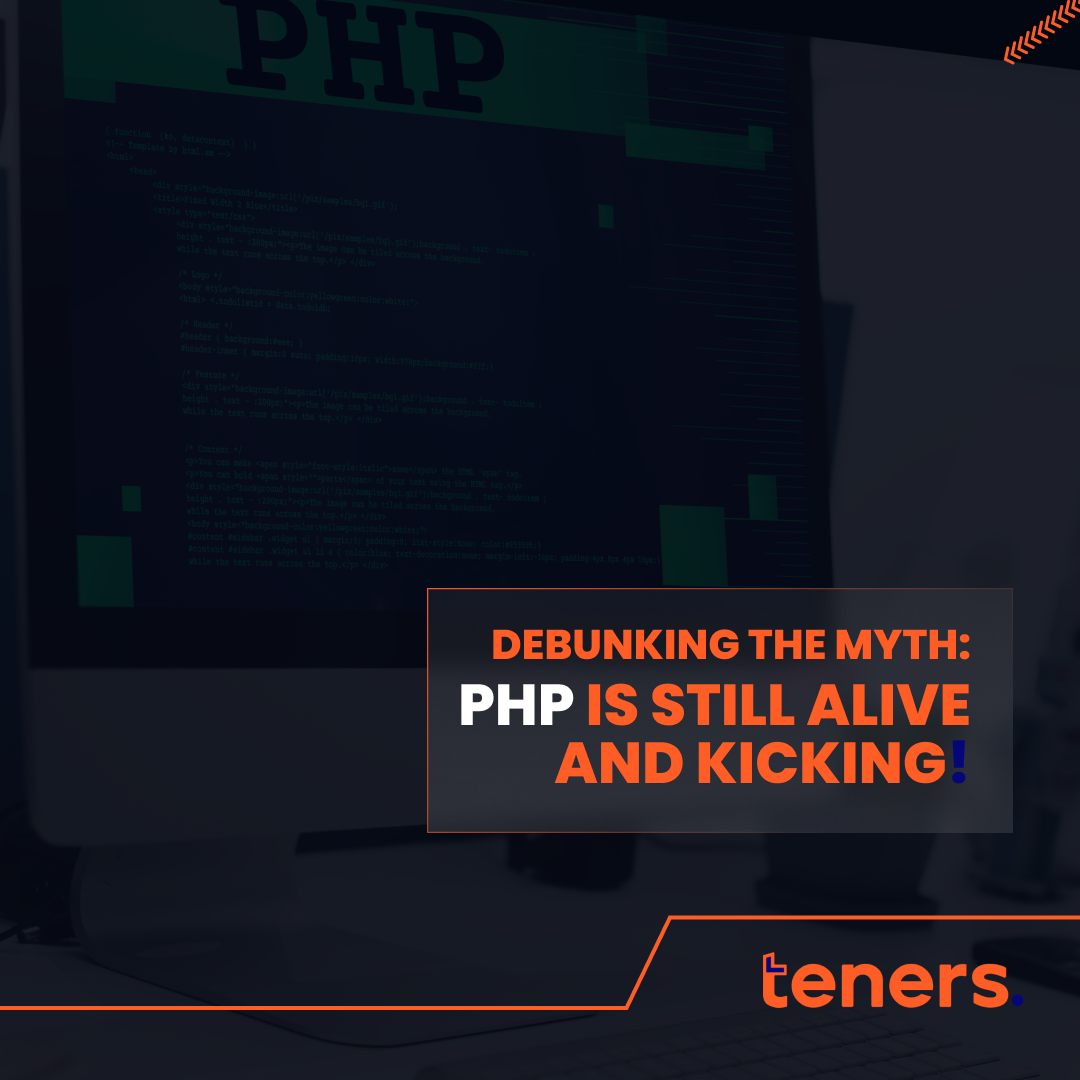
Introduction
PHP has been around for almost 30 years. Although there have been updates and innovations in computing due to the introduction of artificial intelligence, the programming language remains relevant to date. However, recent arguments have been that PHP is becoming too old and extinct, and no one uses it. Despite rumours of its decline, PHP remains a relevant and widely used language in the modern age. This article will prove that fact by analysing numbers and statistics of PHP usage. Furthermore, although other programming languages are becoming popular, it would be entirely wrong to conclude that PHP is dead.
Market Share and Adoption
According to W3Tech, in 2024, PHP was considered the most popular programming language, with a usage percentage of about 76.2%. With this statistic, it is unrealistic to say that the programming language is declining in popularity. Furthermore, IT Jobs Watch shows increased demand for PHP developers, such as PHP Software Engineers, Mid-level PHP Developers, Laravel PHP Framework developers, Full-Stack PHP Developers, and many others.
Another fact that backs up the claim of PHP popularity is WordPress's use of PHP version 7. WordPress is a very popular content management system website, and since it requires a minimum of PHP version 7.4 to be installed, this tells a lot about the usage of the PHP language. Statistically, the usage of PHP version 7 by all the websites that use PHP as of June 2024 is 54%, which is way above average (W3Tech).
PHP is not just a cliche programming language or an extinct language because many functioning and popular websites still use it. Any language can be considered a good option if many popular and reliable websites and companies use it; therefore, PHP is a good option. Some of the companies that use this programming language include WordPress, Facebook, Etsy, Wikipedia, Slack, Tumblr, MailChimp, Yahoo, Drupal, Spotify, Magento, Pfizer, Peloton, Moodle, and Canva ( Hubspot).
From a Content Management System (CMS) perspective, WordPress has the highest market share of 62.7% (W3Tech) and uses PHP as a programming language. Notably, there is a growing demand for content management systems as businesses look to reach out to new customers through search engine optimisation (SEO). A good CMS like WordPress is needed to achieve publicity and increase customers through SEO. Conclusively, an increase in demand for a good CMS poses a favourable market for WordPress, thereby increasing the use of the PHP programming language.
PHP Frameworks and their Market Share
To further analyse the position of the PHP programming language, it is necessary to examine the market share of its different frameworks. According to Will M., some of the best PHP frameworks include Laravel, CodeIgniter, Symfony, Phalcon, CakePHP, FuelPHP, and many others. Of all these frameworks, Laravel has the most market share and has grown steadily. It was ranked the most popular PHP framework on GitHub in 2024 with 77.3k stars
Development and Trends
Over the years, the PHP programming language has significantly evolved, with new features in every new version. The recent innovation is seen in version 8, which has new features like union types, named arguments, attributes, and others that enhance developers' productivity and enable them to write cleaner and more maintainable code.
Furthermore, aside from new features, the PHP ecosystem has adopted emerging trends like Psalm, a static analysis tool that helps developers catch code errors and have a more strict type checking, thereby allowing developers to write reliable and quality codes.
Compared with other programming languages like Python and JavaScript, PHP has distinctive features and uses that make it stand out. Python is used in data analysis, machine learning, and task automation, and JavaScript is used primarily for web development (especially on the client side). On the other hand, PHP is used for web development on the server side, and it is a top choice because of its simplicity and a wide ecosystem of varying frameworks and libraries.
Challenges and Opportunities
The question of whether PHP is still relevant or where it stands in the ever-developing technology world stems from the major criticisms of its security and performance. PHP has always been criticised for its security vulnerability, which is majorly caused when developers write insecure codes or use outdated language versions. However, these concerns have been mitigated by improving features in the language and enhancing better security practices such as input validation, secure password hashing, and parameterized queries. Another historical criticism of PHP is its performance compared to languages like Go. Recently, new versions of the language have been updated and new features such as just-in-time compilations and performance optimisations in frameworks help improve the execution speed of the language.
Aside from the challenges of PHP, the language offers opportunities, such as versatility that makes it suitable for API-driven development and the creation of scalable backend systems for web and mobile applications. Another opportunity in PHP is the seamless integration of Jamstack architecture, allowing developers to build fast, dynamic, secure websites.
Conclusion
It’s not new information that PHP has been around in the technology and programming language space for a while, and although some critics have other choices they would rather go for, PHP still remains a very valid programming language that is well used by programmers. Many popular websites use PHP as their official programming language, further proving its validity; however, there is always room for growth.
If you are a beginner looking to start a tech career in PHP or any other programming language, or you are a pro programmer looking to build more skills, the Tener Academy is for you. At Teners Academy, you get to be tutored by experienced and professional tutors and interact and network with other students like you. Visit the Teners Academy website for more enquiries
